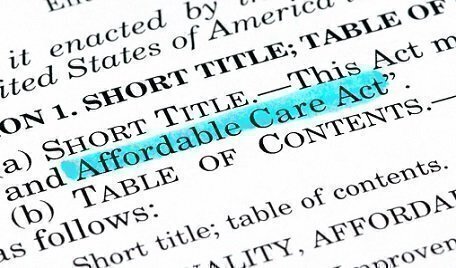The Trump Administration has now lost – even if only temporarily – the authority to enforce anywhere in the nation a set of sweeping new restrictions on women’s free access to birth-control devices and techniques under the Affordable Care Act (“Obamacare”).
 That was the result of a decision Monday afternoon by a federal trial judge in Philadelphia, acting on the same day that the Administration had planned to put the new rules into effect, at least in a majority of the states.
That was the result of a decision Monday afternoon by a federal trial judge in Philadelphia, acting on the same day that the Administration had planned to put the new rules into effect, at least in a majority of the states.
U.S. District Judge Wendy Beetlestone issued the nationwide order one day after another federal trial judge, in Oakland, Calif., had blocked enforcement of the new restrictions but did so only for 13 specific states and Washington, D.C.
Judge Beetlestone found that only a temporary order applied coast to coast would provide a complete remedy – for the time being – for the harms that she found are likely to befall the two states that filed the case in her court (Pennsylvania and New Jersey) and the women of child-bearing age who live, work or study in those states.
Refusing to limit her decision to those two states, she said, would not reach women who work in the state but live in other states and commute, or women students from other states who attend schools or colleges in Pennsylvania and New Jersey. While conceding that an order applying everywhere in the nation may have been broader than the harms she found likely to arise from the new restrictions, the judge said there was simply no way to run all of the calculations necessary to make her order narrower.
On Sunday night, just hours before the new rules were to take effect on Monday, the Oakland judge – U.S. District Judge Haywood S. Gilliam, Jr. – had temporarily barred enforcement of the new rules in the13 states, plus the nation’s capital, that had sued in his court. As a result of Judge Beetlestone’s Monday decision, a temporary enforcement ban now applies to all of the states, including the 37 not covered by Judge Gilliam’s action.
The Trump Administration now has the option of challenging each of the new rulings in a higher regional court, a U.S. Court of Appeals, or attempting to take the dispute directly to the Supreme Court. The deeply controversial fight over the birth-control mandate has now run on for more than seven years, and has been to the Supreme Court twice before without a final ruling on the legality of the mandate and who is entitled to be exempt from it.
Neither of the two new rulings by trial judges dealt with challengers’ claims that the new contraceptive restrictions (adopted by the Administration in final form in November) violated the constitutional rights of women eligible for free access to those pregnancy-prevention methods.
Both did rule that, when the cases are finally decided after forthcoming trials, that the rules are likely to be struck down as beyond the federal government’s authority under the Affordable Care Act, which mandated free access to all approved forms of contraception.
In a key part of Judge Beetlestone’s new ruling, she strongly suggested that the Administration would be wrong in its basic argument that the exemptions from the mandate for religious entities were actually required by a 1993 federal law, the Religious Freedom Restoration Act. (The Supreme Court in its 2014 decision giving privately-owned businesses whose family owners were devoutly religious objectors to contraceptive had relied on RFRA as the basis for that exemption. The Philadelphia judge declared that the 2014 ruling did not mean that the government had to create broad religious exemptions to the birth-control mandate.)
The judge also said the Administration was likely to lose on its argument that the ACA itself gave the government authority to craft wide-ranging exemptions to the new contraceptive mandate.
“The breadth of the exemptions is remarkable,” the Philadelphia jurist wrote.
The final rules, replacing but not significantly changing an earlier “interim” version that federal judges also had kept from being enforced, go significantly further than Obama Administration rules had gone in providing an exemption to religious bodies or to non-profit entities and to profit-making private companies owned by a small group of individuals who object for religious reasons to some forms of contraception.
Under the final Trump Administration rules, almost any business of any size as well as any religious entity or religiously affiliated entity can gain a complete exemption from the legal duty to provide contraceptives to their women employees or their students. Non-profits that are protected operate hospitals, schools or colleges, or charitable organizations. All private business firms, if their shares are not owned by the public, also would be eligible to be exempt.
None of the exempt entities would be obliged even to tell the government that they are claiming the exemption, and the exemption also could extend to the financial companies that insure their health coverage benefits unless they volunteer to provide the coverage while the main entity remains exempt. (The Obama Administration would not have allowed exemptions for insurers of health plans for religious entities.)
Moreover, the Trump Administration rules added for the first time a broad exemption from the mandate for non-profit or profit-making entities that object to contraception for reasons of morality, not religious belief. (There were no moral exemptions available under the Obama Administration’s approach.)
Judge Beetlestone’s 65-page opinion questioning the legality of all of the rules spent little effort finding potential legal flaws with the morality-based exemptions.
Lyle Denniston has been writing about the Supreme Court since 1958. His work has appeared here since mid-2011.







